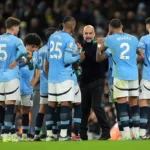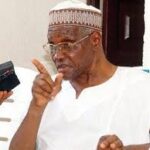One of the weakest links in Nigerian democracy is the very poor quality and low capacity of political
parties. Since parties emerged in 1922 to contest the limited elections allowed by the colonial authorities in the Lagos and Calabar Councils, they have always operated in a context of constrained democracy and often, excessive electoral fraud. The 1983 report of experts by the National Institute for Policy and Strategic Studies (NIPSS) just before the 1983 elections, correctly predicted that the elections could not be conducted without massive electoral fraud because the parties in power were not ready to allow others to come to power. The report also showed that only the 1959 and 1979 elections were held without systematic rigging and that those two elections had one point in common: they were held in the presence of strong arbiters, the colonial State and the military, who were not themselves participants in the elections and who desired free and fair elections at those instances. Subsequently, the two other elections were considered relatively free and fair, they were the 1992 and 1999 elections. In contrast however, the 2003 and 2007 elections joined the list in infamy by being some of the most fraudulent elections in our history.here is a direct relationship between rigged elections and the poor quality of politicalparties. When electoral outcomes are based on fraud rather the franchise of the people, what parties need are state resources, illegal use of security agencies, money and violence rather than the ability to convince voters. It is because of this link that Nigerian parties have been relatively underdeveloped over the years. Ruling parties use incumbency to determine electoral outcomes while opposition parties become despondent with the knowledge that no matter how popular they are, the votes they get or the votes intended for they but not obtained will not translate into victory.
There is however a turning point that has emerged since the 2011 elections when the Attahiru Jega-led INEC succeeded in turning the tide by organising elections that were much more free, fair and credible than previous ones. This tide has continued to improve in the elections since 2011. This creates hope but above all, inspires confidence that improving the acceptability of parties to voters is the path to success. It is in this context that the National Institute for Policy and Strategic Studies is this Wednesday launching the “Political Party Leadership and Policy Development Centre” in Kuru with support from the United Nations Development Programme (UNDP) Democratic Governance for Development Programme.
The Director-General of the NIPSS, Professor Tijjani Bande is keen to deploy his institute’s resources and capacity to provide non-partisan capacity building skills to registered political parties so that they improve their ability to carry out the constitutional responsibility of presenting clear issue-based policy alternatives to Nigerians who can then exercise political choice based on their assessment of how the parties can change their lives for the batter. The objective is to gradually move away from issues of personality, ethnicity and regionalism. The National Institute, he told me, is committed to playing its role in improving the quality of Nigeria’s democracy by placing improved policy formulation and implementation at the centre of the lives of political parties. We can only wish him success in this laudable endeavour.
At the beginning of the Fourth Republic, only three political parties were registered. They are the People’s Democratic Party, the All People’s Party, later the All Nigeria People’s Party (ANPP) and Alliance for Democracy (AD). The 1999 elections led to the victory of the PDP but the two other parties were able to retain the regional support bases. Since then, the political party regime has changed considerably. The number of political parties went up to 57 until INEC deregistered 27 of them bringing the number down to 25. In order to promote credible elections with the existence of strong political parties, section 78(6) of the 2010 Electoral act provided INEC with the power to de-register any political parties that failed to win any of executive and legislative seats in elections. Only ten parties won seats in the 2011 elections. It will therefore be interesting to see if more parties will be de-registered by INEC. My concern is that de-registration should be focused on parties that are not functional, have no activities or offices he key challenge facing Nigerian parties is that they are run by godfathers and barons rather than members. They are arenas that have clientelist networks that are used by the party barons to “deliver” crowds for rallies and party congresses. Indeed, most parties treat their members with disdain and utter disrespect. We all recall the time in 2005 when a party boss once declared the “People’s Democratic Party (PDP) is full of members who fraudulently obtained their party membership cards” – Nigerian Tribune, 23/11/2005. These were the words of Amadu Ali, the then Chairman of the ruling People’s Democratic Party to justify the decision of the party to dismiss all its members in November 2005 and request that they all apply for new membership. For weeks, the PDP enjoyed the distinction of being the only ruling political party in world history without a single member. Following the dismissal of all party members, a thorough process of screening was developed to ensure only the right type of people are re-admitted back into the party. Among those refused registration when they re-applied were the then Vice President of the country and numerous state governors elected under the platform of the ruling party.
Currently, there is a lot of effervescence in the lives of Nigerian political parties. Many parties are undergoing serious internal rift. Other parties are trying to merge so that they emerge as a strong viable opposition. All of them would benefit greatly from showing more respect to their members. They all need to embrace internal party democracy which is the ultimate demonstration of respect to party members. The new Centre should therefore focus not only on technical issues such as how to develop issue-based manifestoes, improved internal and external communication, good political diagnostics and better campaign skills. They should also emphasise the values of better bonding and mutual respect between party leaders and members.
 Join Daily Trust WhatsApp Community For Quick Access To News and Happenings Around You.
Join Daily Trust WhatsApp Community For Quick Access To News and Happenings Around You.


